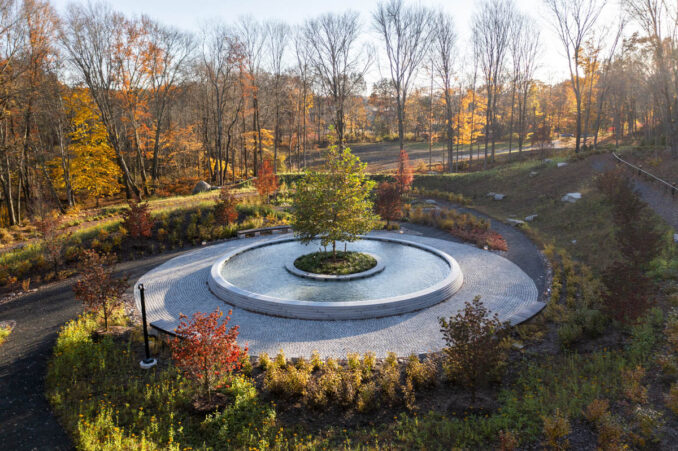
The Clearing, was selected unanimously by the Sandy Hook Permanent Memorial Commission among 189 international design submissions and with overwhelming support from the families of the victims. The Memorial was implemented on a donated five-acre site in Newtown, Connecticut.
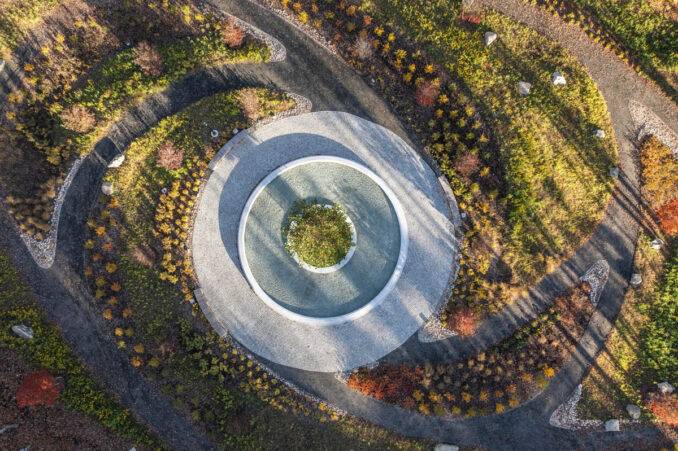
The designers Daniel Affleck and Ben Waldo wanted to create a memorial space in which visitors could participate, and which would grow with them over time. Three primary elements — the circle, the path, and the tree — are the hallmarks of a design that achieves these goals. A circling network of paths takes the visitor through a woodland, across ponds and meadows. The paths connect to one another and allow the pedestrian to experience the space in their own way and at their own pace before arriving at the center. This is meant to honor the process of grieving and remembrance.
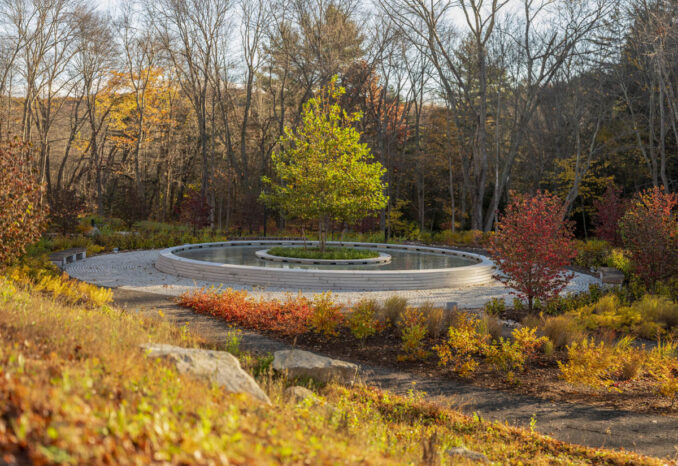
The Clearing represents a culmination of many years of effort as the site was previously a greenfield with no infrastructure, water, or electricity. Mature maple trees surround the site, adding to the sense of envelopment and enclosure in nature. The design is appropriately scaled to the space and the community’s needs.
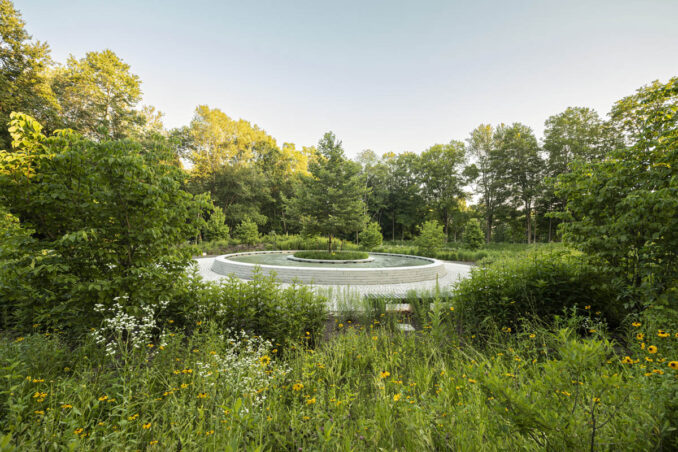
The Sandy Hook Memorial differs from other memorials in that it was publicly funded and completely community-led. It is also primarily a landscape rather than a monument, elevating the dynamism of ecology over typologies rooted in permanence. The site-driven design was informed and reflective of its woodland setting. The Memorial is only a quarter mile from Sandy Hook Elementary, the scene of the tragedy – easily within walking distance of the school, and children’s voices can be heard from the site.
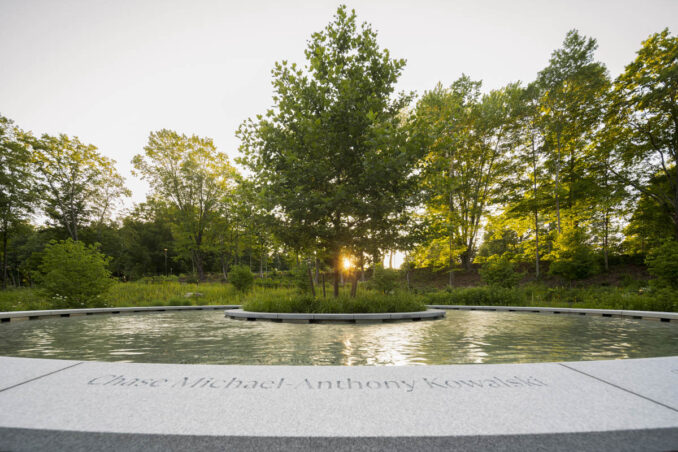
The design promotes interactivity and contemplation, emulating the meditative quality of walking in the woods. The seasonality of the design emphasizes growth and change. Cues to the visitors’ approach to the central water feature and a ‘Sacred Sycamore’ tree engage the senses. Frogs, birds, and insects are audible before the creek-like rush of the water feature predominates. Sonic elements leverage the calming intangibles of being in nature. Additionally, the crunch of gravel underfoot fades after a final bend in the trail, where the surface is replaced by cobblestone around the water feature.

The clearing has an open quality after visitors walk the spiraling path to the water feature (which may be glimpsed at various points along the trail). The views evolve upon approach and the topography and vegetation change.

The cleanly cut, pale granite surrounding the water feature is unique to the central feature and contrasts with the more naturalistic treatments surrounding it. The stone’s form echoes the spiraling quality of the path, but is directionally juxtaposed: the trail spirals clockwise, while the water flows counter-clockwise.
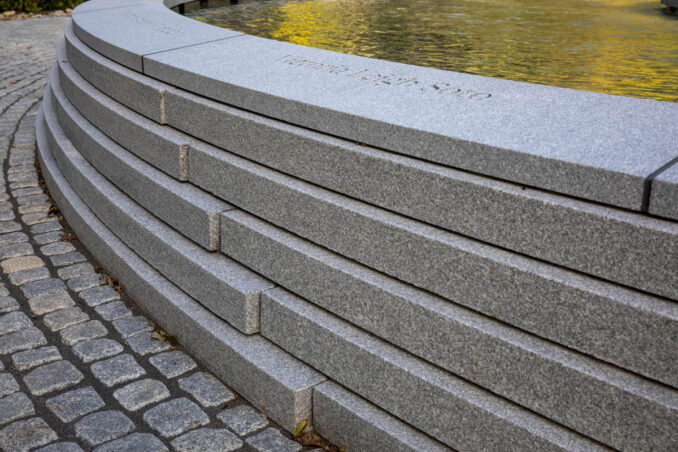
The water around the central tree is in constant motion, creating (in concert with the trail), a mandala-like quality. The water feature’s circular edge is engraved with the equally spaced names of those lost so that visitors can locate a specific loved one’s name and interact from there with the water and the central tree.
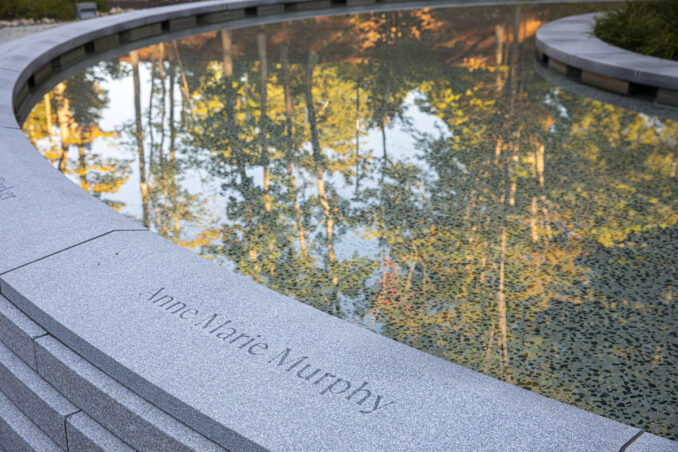
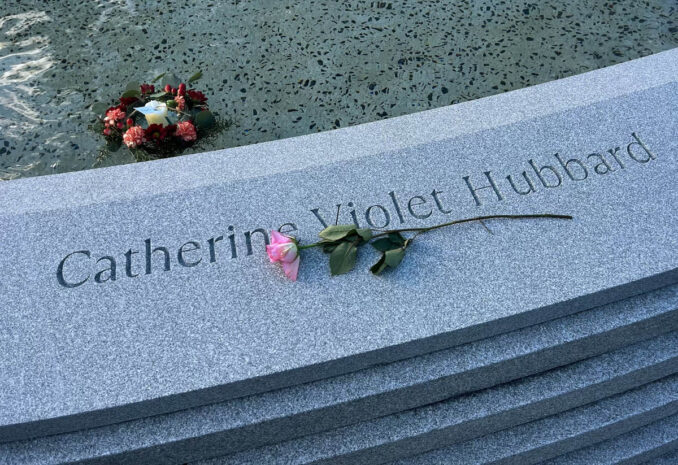
On special occasions, visitors are invited to place a candle or flower in the water and watch it spiral toward the central tree, offering a sense of ritual and reflecting the grieving process.
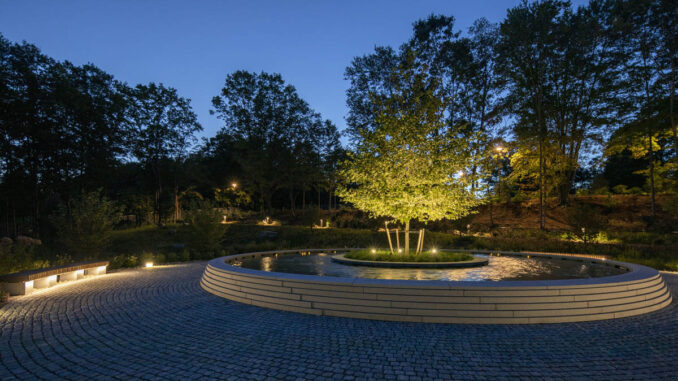
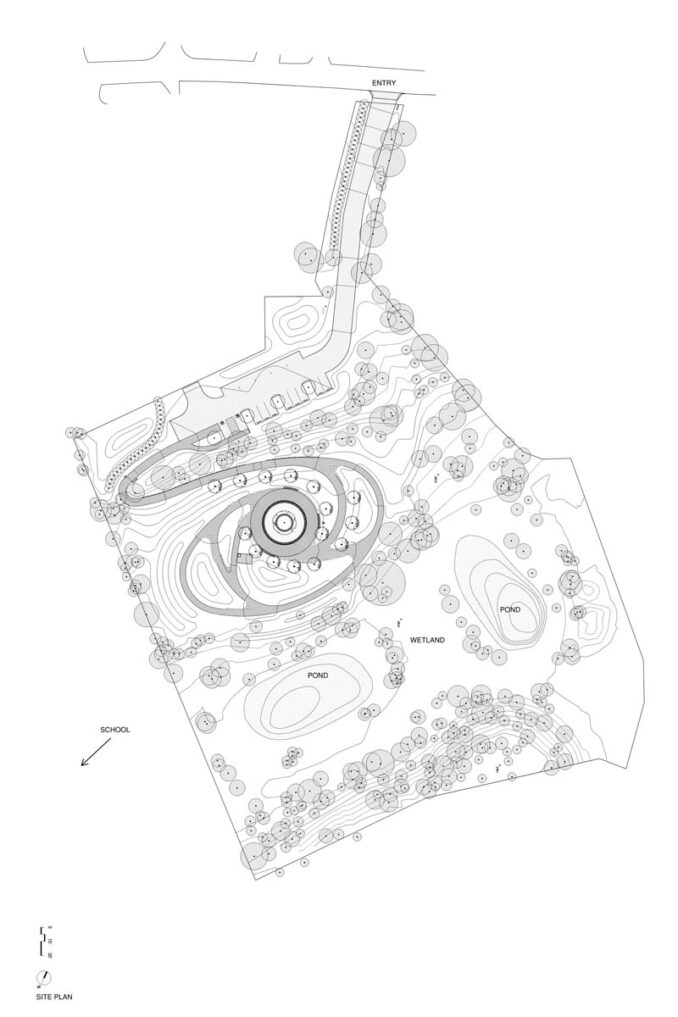
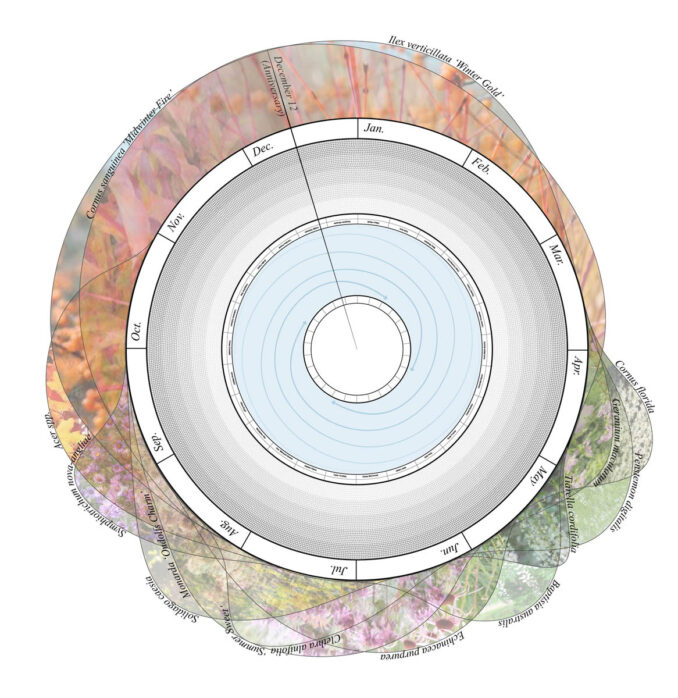
The Clearing
Location: Sandy Hook, Connecticut, USA
Landscape Architect: SWA Group
Designers: Ben Waldo, PLA and Dan Affleck, PLA
Collaborators:
- Artemis LA / Planting Design
- Fluidity / Water Feature Engineer
- JMC / Civil Engineer
- Atelier 10 / Lighting Design
- Downes Construction / Construction Manager
Photo Credits: Neil Landino and David Lloyd
Drawing Credits: SWA Group
